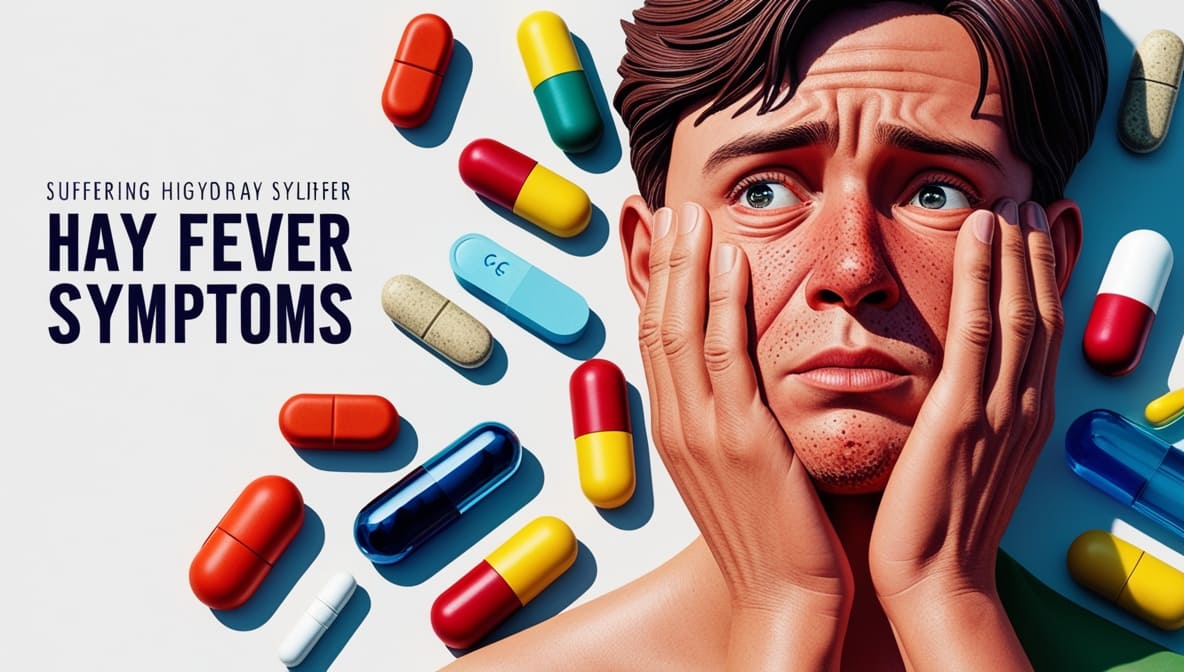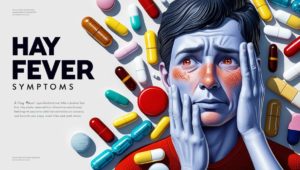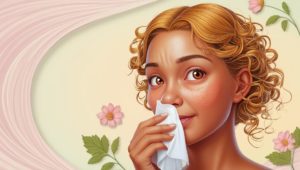
Hay Fever Symptoms: How to Identify and Treat Allergic Reactions
Hay Fever Symptoms: How to Identify and Treat Allergic Reactions
Hay fever symptoms ruining your day? Discover common signs of allergic reactions, and find out how to reduce discomfort with effective treatments. At Dokter Now, we understand how debilitating hay fever can be for individuals, especially when symptoms are severe and persistent. Hay fever, also known as allergic rhinitis, affects millions of people worldwide, causing discomfort and interfering with daily activities. In this guide, we’ll delve into the symptoms of hay fever, from mild reactions to severe allergic responses, helping you identify the signs early on and manage them effectively.
What Are Hay Fever Symptoms?
Hay fever is an allergic reaction to airborne substances such as pollen, dust, or mold. When a person with hay fever encounters these allergens, their immune system reacts by releasing chemicals like histamine, leading to a series of symptoms. Hay fever symptoms can vary in intensity and may affect different parts of the body, primarily the eyes, nose, and throat. Soothe acid reflux with trusted treatments. Relieve heartburn, improve digestion, and enjoy comfort with solutions designed for lasting relief!Common Hay Fever Allergy Symptoms
Some common hay fever allergy symptoms include:- Sneezing
- Runny or stuffy nose
- Itchy eyes, nose, or throat
- Watery eyes
- Fatigue
- Coughing

Recognizing Severe Hay Fever Symptoms
In some cases, hay fever symptom can become more intense, leading to severe hay fever symptoms. When this happens, it may affect your ability to perform everyday tasks. If you experience extreme hay fever symptoms, it’s important to seek advice and treatment from a healthcare professional. Find effective migraine pills in Berlin. Relieve pain and manage symptoms with trusted treatments to regain control and comfort throughout your day. Severe symptoms may include:- Intense nasal congestion
- Chronic sneezing
- Difficulty breathing (due to swollen nasal passages)
- Swollen, red, or itchy eyes
- Headaches
- Severe fatigue
- Ear infections or discomfort
Hay Fever vs Cold Symptoms: How to Tell the Difference
Many people confuse hay fever symptoms with the common cold. Both conditions share similar symptoms, such as sneezing, runny nose, and congestion. However, there are a few key differences that can help you distinguish between the two:
- Duration: A cold usually lasts between 7 and 10 days, whereas hay fever symptoms can persist for weeks or even months, depending on exposure to allergens.
- Fever: Cold symptoms often come with a fever, while hay fever symptoms do not.
- Itchy Eyes: Itchy eyes are a hallmark of hay fever but are rarely present with a cold.
- Nasal Discharge: Hay fever often leads to a clear, watery nasal discharge, while a cold might produce thicker, colored mucus.
Hay Fever Symptoms in Children
Hay fever can affect children as well, and recognizing the symptoms of hay fever in kids is crucial for early intervention and relief. Common signs of hay fever symptoms in kids include:- Sneezing and coughing
- Watery, red, or itchy eyes
- Constantly rubbing their nose
- Nasal congestion or stuffy nose
- Irritability or trouble sleeping
Eye Symptoms of Hay Fever
One of the most noticeable hay fever symptoms is eye-related. Known as allergic conjunctivitis, this condition causes inflammation of the eye’s mucous membranes. Hay fever symptoms eyes include:- Redness
- Itching
- Swelling
- Watery eyes
- Sensitivity to light
 For many, eye discomfort can be one of the most bothersome aspects of hay fever. If these symptoms worsen, it’s essential to speak with a healthcare professional to explore treatment options. Prioritize your sexual health with trusted solutions. Boost confidence, enhance performance, and maintain a healthy, fulfilling intimate life every day.
For many, eye discomfort can be one of the most bothersome aspects of hay fever. If these symptoms worsen, it’s essential to speak with a healthcare professional to explore treatment options. Prioritize your sexual health with trusted solutions. Boost confidence, enhance performance, and maintain a healthy, fulfilling intimate life every day.
Acute Hay Fever Symptoms: What to Watch For
While hay fever is often manageable, some individuals may experience acute hay fever symptoms, particularly during high pollen seasons or when exposed to allergens like dust mites or pet dander. Acute hay fever symptoms can include:- Intense sneezing fits
- A sudden, severe runny nose
- Difficulty breathing due to blocked nasal passages
- Sudden onset of itchy eyes or throat
Understanding Hay Fever Allergy Symptoms
When you have hay fever allergies, your immune system mistakenly treats harmless substances like pollen or dust as a threat. The body’s overreaction leads to a variety of allergic responses. The signs and symptoms of hay fever may vary in severity and can affect different areas, but generally, people with hay fever may experience:- Sneezing and nasal congestion: These are the most common signs of hay fever, often accompanied by a runny nose.
- Itchy throat, nose, or eyes: The allergic response causes itching in various parts of the body, particularly the eyes.
- Fatigue: The body’s constant battle against allergens can leave individuals feeling tired and drained.
 It’s important to note that while hay fever symptoms can be uncomfortable, they are generally not life-threatening. However, managing them effectively can greatly improve your quality of life. Find relief with effective sleeping pills. Enjoy restful, uninterrupted sleep and wake up refreshed with trusted solutions for a better night’s rest!
It’s important to note that while hay fever symptoms can be uncomfortable, they are generally not life-threatening. However, managing them effectively can greatly improve your quality of life. Find relief with effective sleeping pills. Enjoy restful, uninterrupted sleep and wake up refreshed with trusted solutions for a better night’s rest!
Preventing and Managing Hay Fever Symptoms
Managing symptoms of hay fever allergies involves a combination of strategies aimed at reducing exposure to allergens and alleviating discomfort. Here are some tips to help you manage your symptoms:- Limit Exposure to Allergens: Try to stay indoors during peak pollen seasons and avoid areas with high levels of dust or mold.
- Use Air Purifiers: A good air purifier can help reduce allergens in your home, especially if you suffer from hay fever symptoms eyes or nasal congestion.
- Medications: Antihistamines, nasal sprays, and eye drops are commonly used to relieve hay fever symptoms. Consult your doctor for the best treatment plan.
- Wear Sunglasses: To protect your eyes from pollen and reduce irritation, wear sunglasses when outside during allergy season.
- Regular Cleaning: Wash your clothes and bedding regularly, and keep windows closed to reduce allergen buildup.
Frequently Asked Questions
Dokter Now provides expert advice on frequently asked questions about hay fever symptoms, offering fast relief and tailored treatment options.What are the common symptoms of hay fever?
Common symptoms of hay fever include sneezing, runny or stuffy nose, itchy or watery eyes, coughing, sore throat, headaches, and fatigue.
What causes hay fever?
Hay fever is caused by an allergic reaction to pollen from trees, grasses, or weeds. It can also be triggered by other allergens like mold, dust mites, and pet dander.How do I know if I have hay fever or a cold?
Hay fever symptoms tend to last longer and may include itchy eyes or throat, while a cold typically causes a sore throat, cough, and fatigue without the itchy symptoms.When is hay fever season?
Hay fever symptoms are most common during spring, summer, and fall when pollen levels from trees, grasses, and weeds are highest. The timing varies depending on the region and type of plant. You might also find our article intriguing: Good Luck to You 🌊
0


